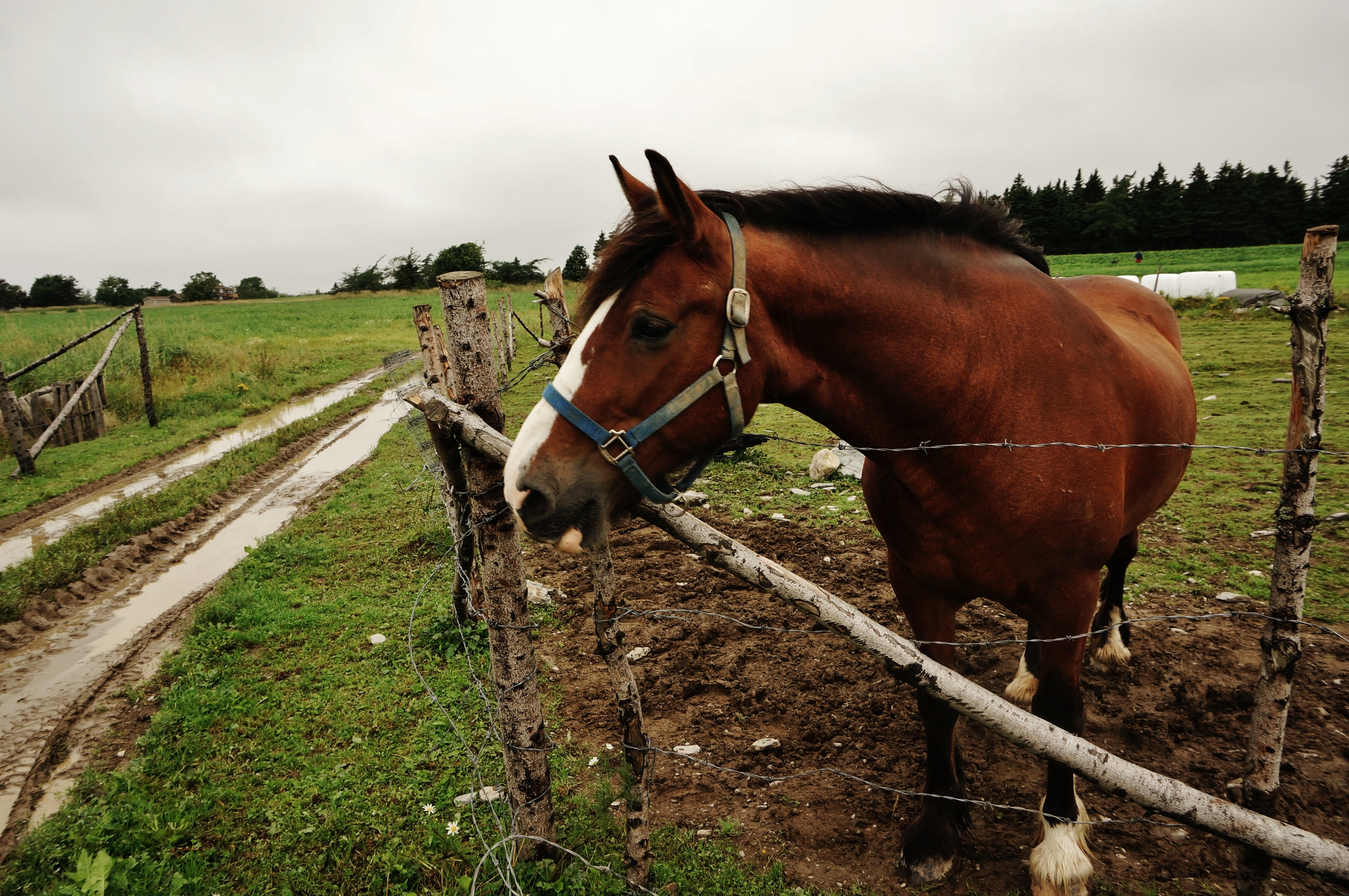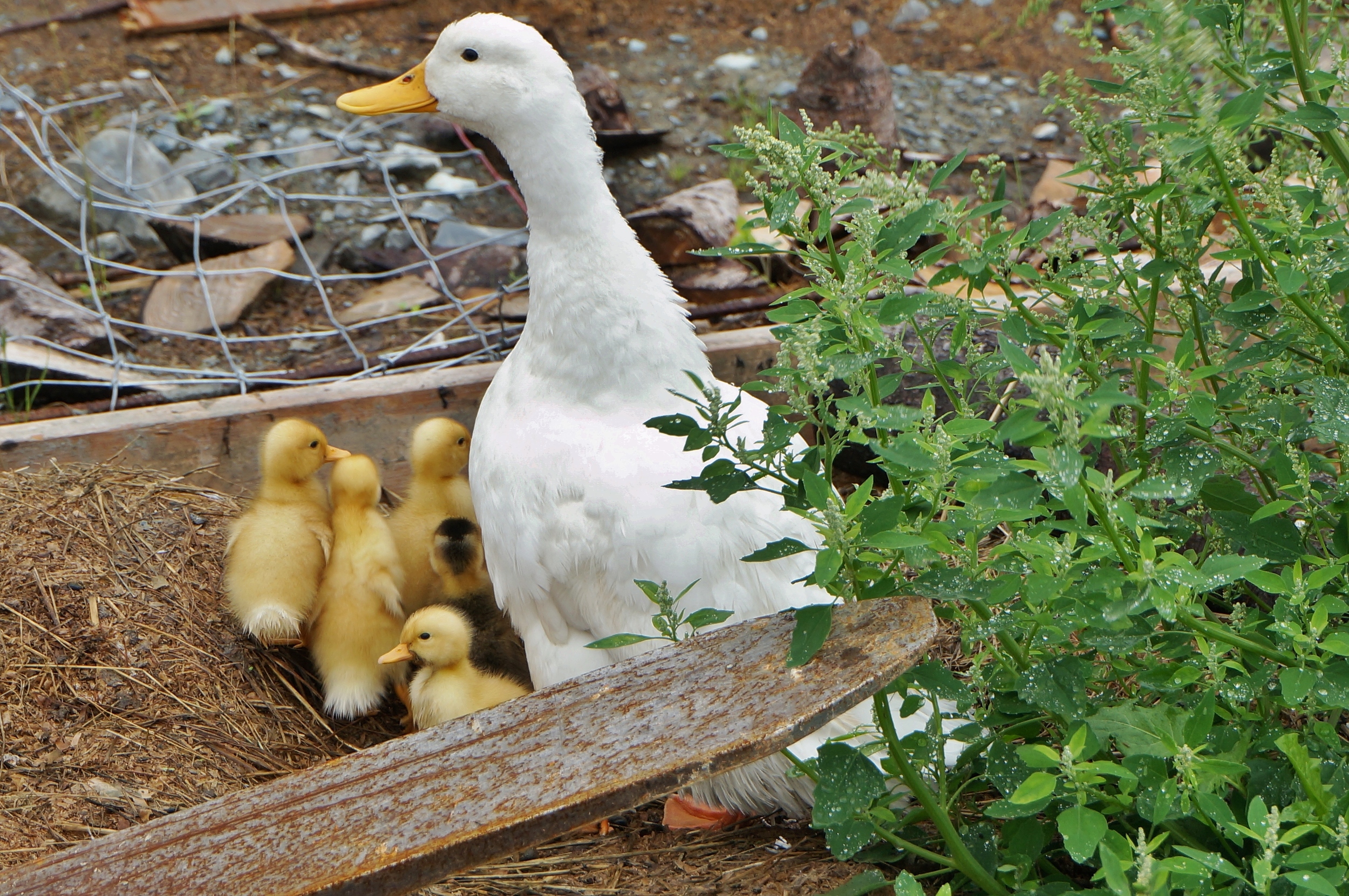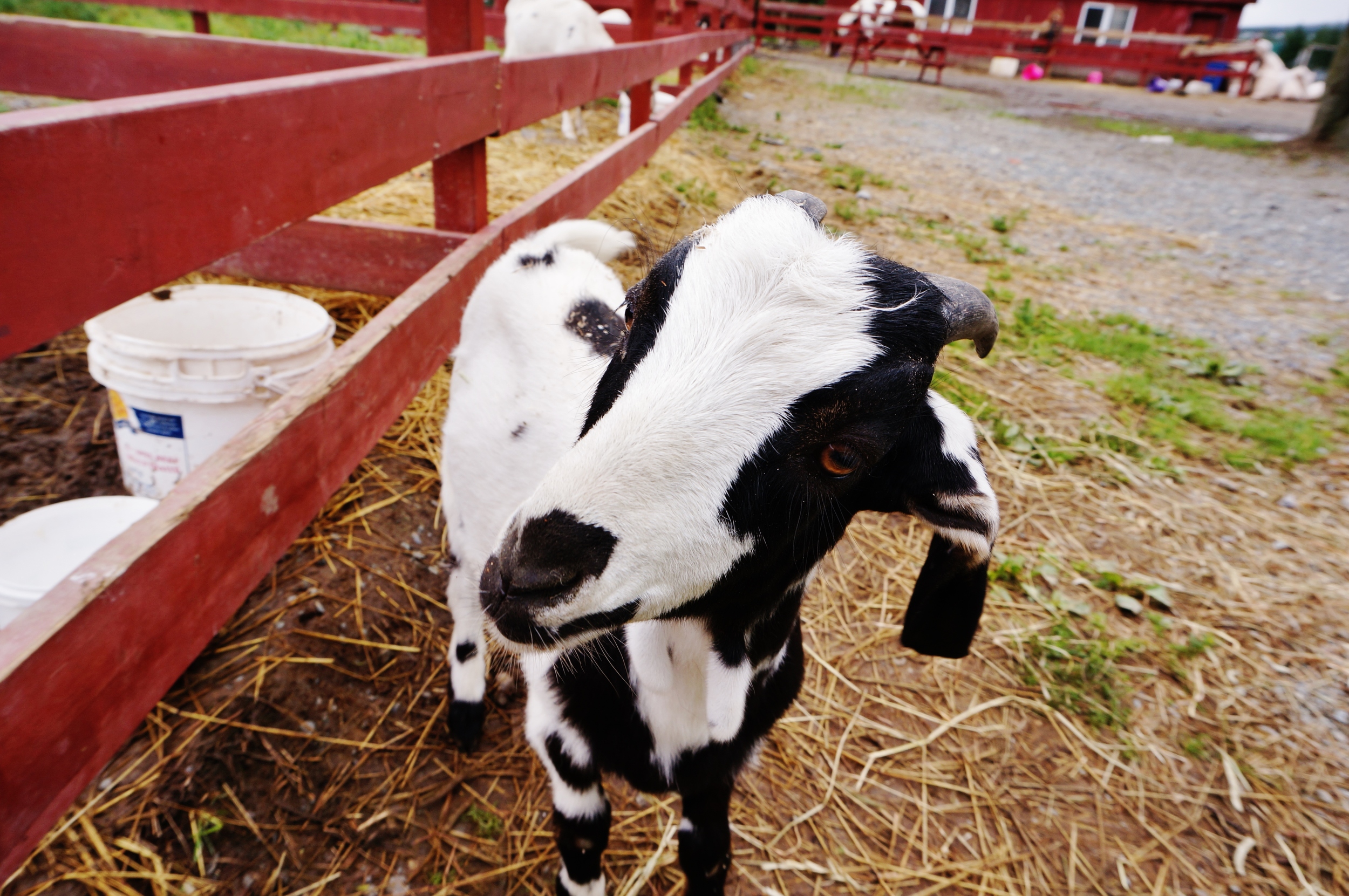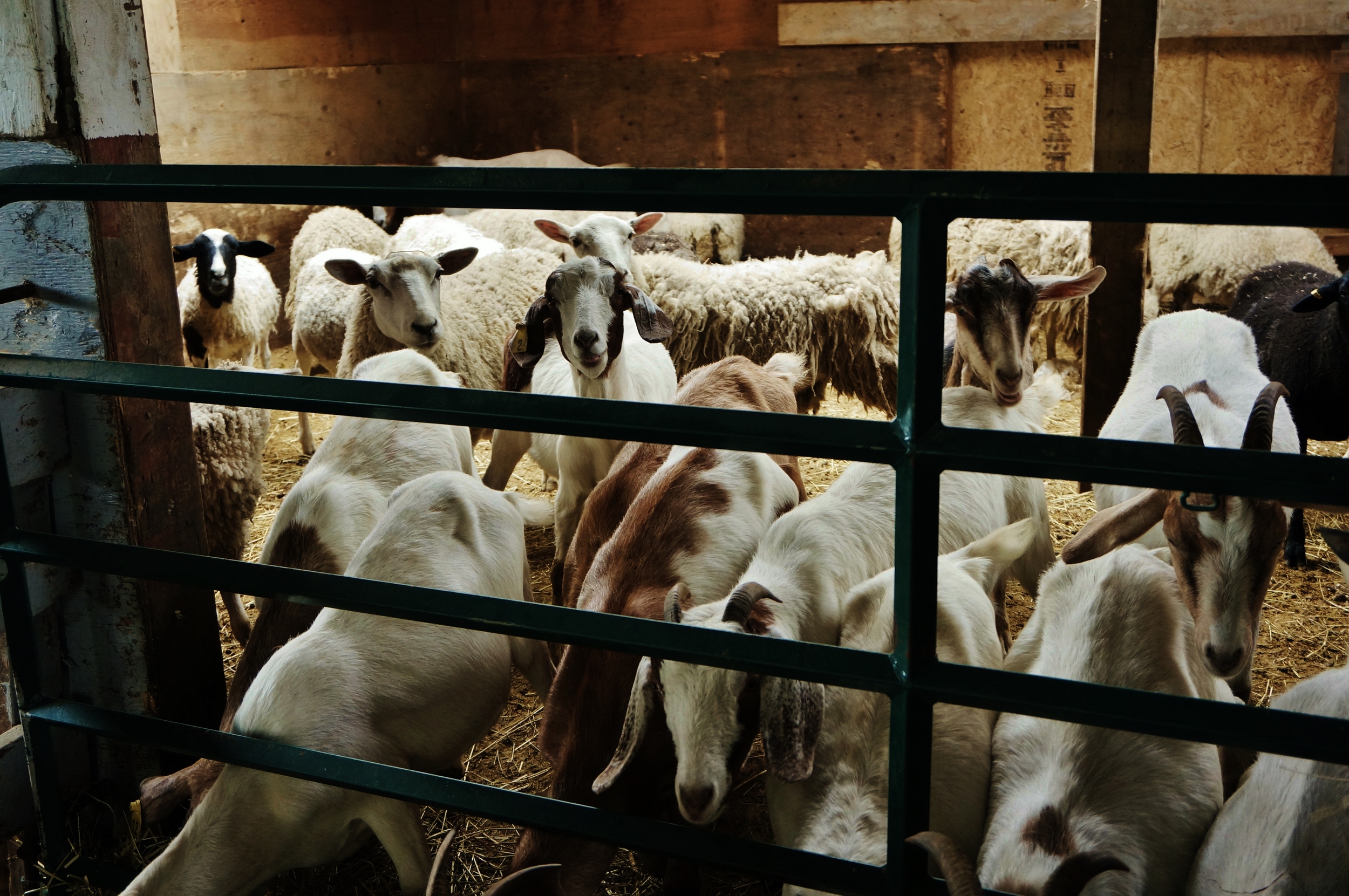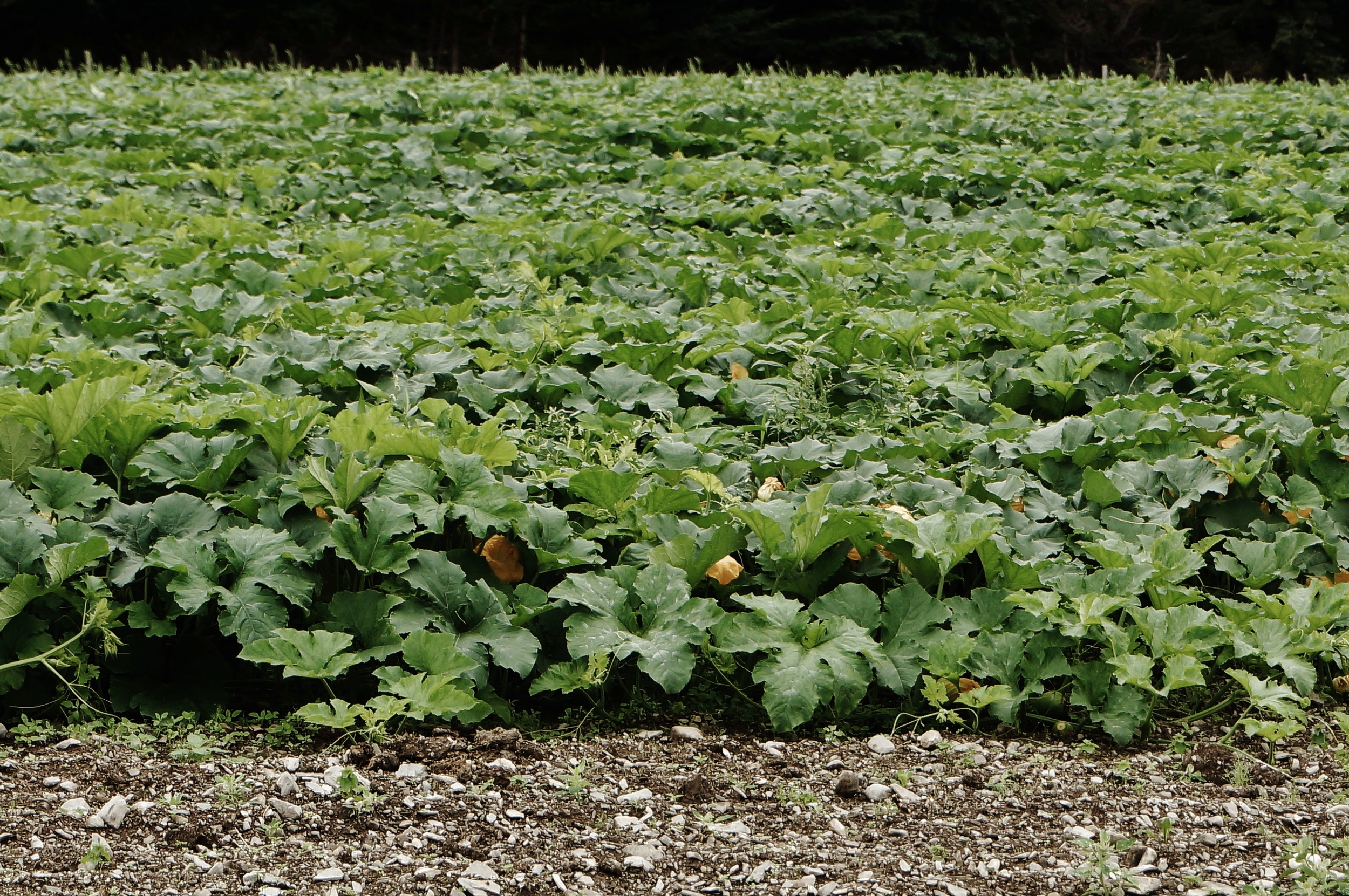 If we're talking family farming in Newfoundland, we'd better talk Michelle and Jim Lester. And they've been breaking new ground from the beginning. Speaking to them about their work, the word that comes to mind is 'pioneers.'
If we're talking family farming in Newfoundland, we'd better talk Michelle and Jim Lester. And they've been breaking new ground from the beginning. Speaking to them about their work, the word that comes to mind is 'pioneers.'
It started with organic farming. Both Michelle and Jim speak passionately about the dangers of applying too much fertilizer and pesticides to the soil, and both speak excitedly about their coffee composting project which to turns used coffee grounds into a fertilizer.
After years growing for market sales and to sell to grocery stores came the transition to an agritourism business model. Jim and Michelle built a chalet — where the name of their farm, “Lester's Farm Chalet” comes from — and began hosting events: weddings, parties, corporate retreats, and weekend lunches and brunches. Now the vast majority of the food they produce goes back into this part of the business — in meals served to their guests, or as in the case of their raspberry u-pick, as food harvested on the farm by people who visit.
The next project, in the works for the past three years, is to start the province's first aquaponics operation, growing vegetables and raising fish in an integrated system that will provide fresh vegetables and tilapia year-round.
Lettuce, in the fields; A hanging basket; Peppers, growing up in the greenhouse.
Michelle is a first-generation farmer, but Jim's family has been farming for seven generations. Michelle says she didn't seem the farming type growing up, calling herself very much a "city girl." But there were clues, however: Growing up she would go out with her grandmother to a place near their country cabin for cream, eggs, and vegetables.
"I think I liked the warmth of the family," she says. "I liked how when I went outside to the vegetables Jim Coates would show me around, and then their son David would show me the horses and I was able to pick up the eggs and do the kinds of chores that they were doing."
"It was something new, so it interested me."
When she met Jim, he took her out to the turkey barn, and they spent the day working there. Perhaps it wouldn't have been for everybody, but with Michelle, it stuck.
"I think I liked the process. Seeing a process through full circle. You started something, and you saw your finished product in the end, and you got to reap the reward of your work."
As for Jim, farming has always been in his life. He grew up in and around animals and the barns, and it's a love that has stayed with him to this day.
"I sometimes say they're a distraction, versus an industry, but yes I do love working with animals," he says. "I say we're the second largest pig farm in Newfoundland, with about fifty pigs."
A mare out grazing (she's in her second decade!); Mama duck & ducklings; A curious goat.
When they started, it was just the two of them, clearing land that was entirely covered in trees. When their children were born, they made sure that they were out on the land with them. Jim says that's key for giving kids a sense of responsibility, and giving them a sense of “life and death.” For Michelle, the growth of the farm means that it is a time to consider what it means to talk about the farm as a 'family farm.' She mentions to me that family farming, at its heart, is about connection. She wants to feel connected to the work she does, to the land she works on, to the people she works with. And so maybe that's it - when there is not that connection, there is no family, and there is no family farm. "The main thing for us," she says, "[...] is that we get to work with our children, and our children's children, for as long as we possibly can."
Michelle and Jim, on top of the work that they do on the farm also bring their work to a wider community. So they worked with the St. John's Farmer's Market at its inception, making local food accessible to people in the city, and Michelle does work with the schools making farming and growing plants accessible to kids. "The farm," she says, "just naturally has a way of engaging people, of calling people in." Being aware of what is happening in the industry and continuously working to improve the techniques that they use to grow is also important to them. They've been three years in talks with government and scientists and engineers for the aquaponics system they're building in part because they've been working on the design. They want to ensure the structure is secure for the winters, and make sure the fish and vegetables will be kept at a constant temperature – even over winters like we've been having, with power outages and extreme weather. Hopefully, in addition to sustainable produce year-round - "it's a no-waste facility" says Jim - it will also be a teaching tool and model for farmers the province over.



The new greenhouse; the fan of one of the existing greenhouses; the new greenhouse, up close.
Hard work, but the future, as Michelle puts it, looks “very, very bright.”
If you like, you can take a listen to our conversations below. It was a pleasure to speak with both Jim and Michelle.
Michelle and Jim's produce can be found in the restaurant in their Farm Chalet, open for weddings, parties, retreats and brunch on Saturday and Sunday from 9-2. They also have a petting barn and a u-pick for berries in the summer. You can check out their website for information on events like pig roasts and sleigh rides.
[audio mp3="http://rootcellarsrock.ca/wp-content/uploads/2014/09/Farm-history-farmer-history.mp3"][/audio]
Jim on starting out.
[audio mp3="http://rootcellarsrock.ca/wp-content/uploads/2014/09/Michelle-getting-started.mp3"][/audio]
Michelle on starting out.
Goats; a sow and her piglets; goats, goats, and sheep, in the petting barn.
[audio mp3="http://rootcellarsrock.ca/wp-content/uploads/2014/09/Learning-to-farm.mp3"][/audio]
Jim on a farmer's education.
[audio mp3="http://rootcellarsrock.ca/wp-content/uploads/2014/09/Whats-on-the-grow.mp3"][/audio]
Jim on what's on the grow.
 Squash in the fields; the tractor; yellow wildflowers.
Squash in the fields; the tractor; yellow wildflowers.
[audio mp3="http://rootcellarsrock.ca/wp-content/uploads/2014/09/Aquaponics-and-growing-a-sustainable-food-system.mp3"][/audio]
Jim on aquaponics and the importance of a sustainable food system.
[audio mp3="http://rootcellarsrock.ca/wp-content/uploads/2014/09/Michelle-agritourism-and-what-the-farm-has-to-offer.mp3"][/audio]
Michelle on agritourism and what the farm has to offer.
A view back towards Signal Hill.
[audio mp3="http://rootcellarsrock.ca/wp-content/uploads/2014/09/Michelle-family-farming-and-the-being-part-of-the-larger-community.mp3"][/audio]
Michelle on family farming and being part of a larger community.
[audio mp3="http://rootcellarsrock.ca/wp-content/uploads/2014/09/On-family-farming.mp3"][/audio]
Jim on family farming.
[audio mp3="http://rootcellarsrock.ca/wp-content/uploads/2014/09/Michelle-aquaponics-and-looking-toward-the-future.mp3"][/audio]
Michelle on what's next for the farm.
Thanks Michelle! Thanks Jim!






